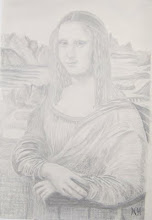New video: Einstein’s Definition of Time The Light Clocks of Relativity
Einstein claimed in his famous 1905 paper that a light beam's passage in an inertial reference frame is what actually defines time.
In his theory of Relativity, Einstein defined Time as the passage of light, between two given endpoints.
This concept of time formed the idea of a light clock.
Defining time as the passage of light between certain endpoints in space would be a terrible idea if it turned out, that some other physical process forms the continuum of time.
But this was a logical choice, because to the best of our knowledge light is the agent which is responsible for the transmission of causal information.
Therefore every process over a period of time that occurs in our universe is at the most fundamental level a type of light clock within it own reference frame.
Einstein never when any deeper in explaining the nature or physics of time.
These videos put forward the idea that we have a probabilistic uncertain future continuously unfolding with absorption and emission of light photon energy.
This would totally fit in with Einstein’s concept of time.
In such a theory the atoms of the periodic table are standing waves in time.
Light and electrons are waves over a period of time with particle characteristics as the future comes into existence with each photon electron interaction or coupling.
Whenever we have the absorption and emission of light our everyday world changes slightly and we comprehend and measure this change as time.
This concept is supported by the fact that light photon energy ∆E=hf is continuously exchanging into the kinetic energy Eₖ=½mv² of matter, in the form of electrons
Kinetic energy is the energy of motion it is the energy of what is actually happening as the future unfolds.
~





No comments:
Post a Comment